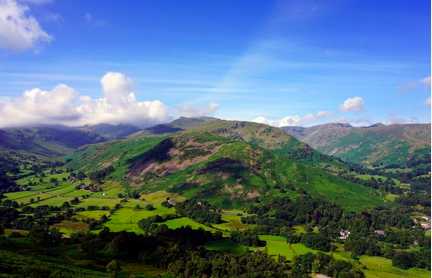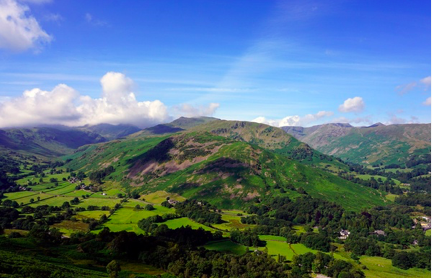On Sept. 13, Sonoma State University’s Center for Environmental Inquiry will be launching a new program called the Student Naturalist Training program. The program will last for five consecutive Sundays, beginning at 10 a.m. to 11 a.m through Oct. 11.
Along with the majority of events and classes being held at Sonoma State, the free program will be completely virtual.
COURTESY// Creative Commons
Students will get the chance to learn more about the natural world around us during Sonoma State’s Naturalist Training program.
The program does offer additional and optional opportunities to experience the program outside, safely, throughout the course. However, this is not required.
Students who choose to participate in the SSU Student Naturalist Training will be undergoing an educational experience that will expose them to a wide range of topics surrounding nature. Such topics include biodiversity along with natural and cultural features of Northern California.
The objective for this program is to have the participants leave with the ability to engage with the public and communicate and inform their newfound knowledge on the environment.
Education Director for the Center of Environmental Inquiry at Sonoma State and provider of the Naturalist Program, Suzanne DeCoursey, describes the significance of the program as essential as she believes that, “No matter what you major in or what you do for a career, we all need to be environmentally ready.”
DeCoursey showed excitement for the training and explained how she connects to it personally.
“I try to learn as much as I can to be environmentally ready myself, and I love sharing what I learn with students and learning from them too. I also enjoy giving students the opportunity to share what they know in order to educate people of all ages,” DeCoursey said.
With their newfound knowledge, members of the Naturalist Training will “put those skills into practice by helping lead digital environmental education programs for school children, creating educational videos, or participating in other projects such as wildlife camera monitoring on SSU lands,” said DeCoursey.
The STAR also reached out to Kerry Wininger who is the Center Outreach Lead for Sonoma State University and has gone through the non-virtual version of this program and helped run it as a graduate student TA.
“Truly, this is an amazing community to be a part of. Our Naturalists help kids and the earth, gain skills that employers actively seek out, learn about the most fascinating things in nature, and it’s just impossible to not have fun in the process,” Wininger said.
The program consists of three or more hour long programs with experts within the Naturalist field. Wininger revealed to the STAR that the program will bring “experts lined up from Oregon to New York to educate our students, with opportunities to connect with researchers in Argentina to South Africa, which is something we’d never be able to do during an on-site program.”
Wininger said “this program showed me the power of quality nature education and outreach in addressing environmental challenges, and how fulfilling it is to be a part of that effort.”
Receiving insight about the nature that makes up our planet is significant to the understanding of the challenges we have already been experiencing, such as fire seasons or heat waves.
According to CAL Fire, “The fire season in California and across the West is starting earlier and ending later each year. Climate change is considered a key driver of this trend.”
Undergoing a program such as the SSU Naturalist Training could not only provide newfound knowledge about the environment but can also inform our students the importance of preventative measures that could benefit our climate and the well being of our planet.
The SSU Student Naturalist Training is not only for those who are interested in the environment, but also for those who are interested in adding more to their resume or in need for internship credit.
“The skills students learn look great on a resume, especially since digital skills are in such high demand during the pandemic,” DeCoursey said.
Digital leads are in high demand as telecommuting becomes more prevalent in the midst of the pandemic. Therefore, receiving as much experience as possible is valuable in our current circumstance.
Whether you are a student looking for internship credit or an individual who wants to experience naturalist training and wishes to better prepare themselves for the future challenges the environment may thrust upon us, the Naturalist Training program is an experience that you do not want to miss.
As DeCoursey said, “We believe in environmental readiness for all!”





































